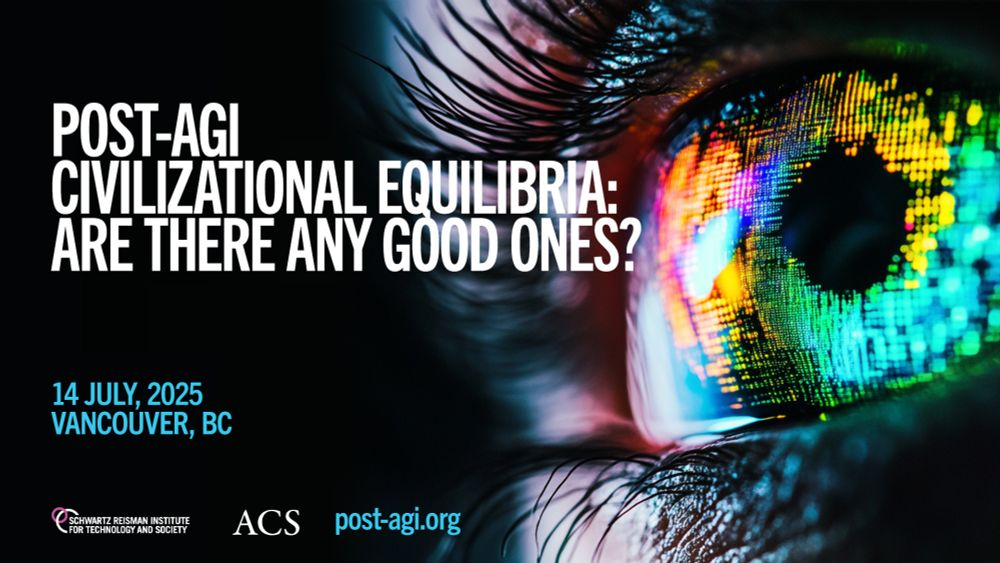Jan Kulveit
@kulveit.bsky.social
460 followers
120 following
31 posts
Researching x-risks, AI alignment, complex systems, rational decision making
Posts
Media
Videos
Starter Packs
Reposted by Jan Kulveit
Jan Kulveit
@kulveit.bsky.social
· Aug 8
Jan Kulveit
@kulveit.bsky.social
· Aug 8
Jan Kulveit
@kulveit.bsky.social
· Aug 8
Jan Kulveit
@kulveit.bsky.social
· Aug 8
Jan Kulveit
@kulveit.bsky.social
· Aug 8
Reposted by Jan Kulveit
Reposted by Jan Kulveit
Jan Kulveit
@kulveit.bsky.social
· Apr 30
Jan Kulveit
@kulveit.bsky.social
· Apr 30
Jan Kulveit
@kulveit.bsky.social
· Mar 7
Reposted by Jan Kulveit
Dustin Moskovitz
@moskov.goodventures.org
· Feb 27
Jan Kulveit
@kulveit.bsky.social
· Feb 24
Reposted by Jan Kulveit
Jan Kulveit
@kulveit.bsky.social
· Nov 29
Jan Kulveit
@kulveit.bsky.social
· Nov 29
Jan Kulveit
@kulveit.bsky.social
· Nov 29
Jan Kulveit
@kulveit.bsky.social
· Nov 29
Jan Kulveit
@kulveit.bsky.social
· Nov 29









